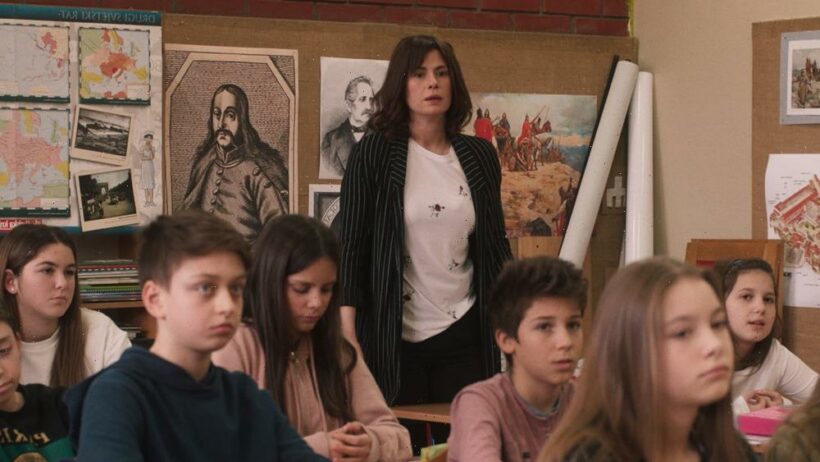Competing for the Crystal Globe at Karlovy Vary Film Festival, director-writer Sonja Tarokić’s impressive debut drama “The Staffroom” tackles the psychology of the workplace as experienced by idealistic, new primary school counselor Anamarija (Marina Redžepović). Naturalistically filmed and set within a concrete, culturally loaded environment, it’s a coming-of-age story about a young woman who learns to accept that she is neither stronger nor nobler than the people around her.
As Anamarija attempts to fit in and just do her job with the children, she tries to stay out of the power games played by the headmistress, teachers and parents, but it’s not easy. Tarokić grew up in a family of psychologists and hearing their stories about the social system all her life provided excellent preparation for this compelling tale of hidden agendas, cliques and petty conflicts.
Tarokić chose a school staffroom as her setting because it epitomized a specific system in which people often spend their whole life with the same group of colleagues, closely connected by friendships, opinions and prejudices. The educational workers are responsible for the children they work with and the specific problems they encounter daily, but also have the symbolic duty of passing on moral values. She says, “For that reason I have always seen the staffroom as a symbol of the community in general, and I wanted to present it as a chatty, cyclic apparatus ridden with tensions. That is why in this film we move almost in circles through always the same school spaces, surrounded by a hubbub of voices that never really stops and thus makes the atmosphere more and more feverish and emotionally charged.”
Although the film takes place in crowded, contained spaces, it manages to flow. How did Tarokić and DoP Danko Vučinović organize that challenge? She says, “The whole mise-en-scène was very difficult to achieve, every actor had their own rhythm, and yet they all had to somehow embrace the pace I was giving them collectively as a group. I wanted them to constantly move, to walk around each other, to find something in the room that they’re doing parallel to the emotion or the dialogue.”
Shooting in widescreen to stay with the faces as much as possible, Vučinović’s camera constantly moves as well, and catches the many nuances of their reactions. Tarokić notes, “I would plan it in such a way that each angle would catch someone’s trajectory in this whirlwind of movement, and when they improvised and brought something wonderfully new to what was already choreographed, that’s when it would come to life.”
Redžepović, a relatively new face in Croatian cinema, has her largest role to date here and handles it with warmth and empathy. Her main antagonists are the Principal and the history teacher, played by theater veterans Nives Ivanković and Stojan Matavulj. Tarokić says, “They are both amazing, wonderful actors who have done some crazy and memorable roles on national television. I wrote both roles specifically for them because I knew I needed their strength.”

The complexity of dealing with a large ensemble cast of adults and children, some of whom had never done a film before and some of whom were non-pros, represented another challenge, performance-wise and financially. As she tried to build a sense of family and trust in the ensemble scenes, Tarokić says, “At times I felt like their homeroom teacher.”
The whole experience was also an education for Tarokić. She says, “I learnt that I love to tell stories about people who care about something, who find themselves in difficulty exactly because of their need to act.” Currently, she’s developing an intense, personal story set against the backdrop of the Croatian tourism industry.
International sales on “The Staffroom” are being handled by Jan Naszewski’s New Europe Film Sales.
Source: Read Full Article
